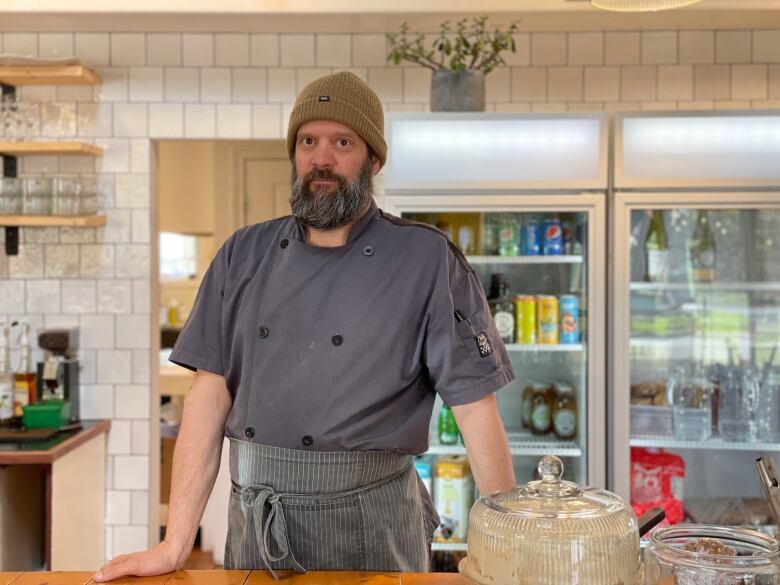N.B. tourism industry faces labour shortage as it prepares for rebound summer
Staffing shortages could mean lost revenue for hotels and restaurants

Anne-Marie Seguin is preparing for a summer of going from check-ins at the front desk to putting on scrubs and cleaning rooms.
The co-owner of Fundy Highlands Motel and Chalets near Alma has been busy searching for staff to help clean and change the sheets in 43 units. But despite running online recruitment campaigns, attending job fairs and running paid ads, applications are sparse, Seguin said.
"We may turn down bookings because we don't want to burn out our staff," she said. "We don't want them to get exhausted or to feel by midsummer they just can't."
In the seaside village of Alma, about 70 kilometres south of Moncton, seasonal business owners are scrambling to find staff as the summer approaches. Help wanted signs are posted in windows in shops, restaurants and inns.
WATCH / These seasonal business owners are struggling to find staff
Finding staff in the rural area, located on the edge of Fundy National Park, has long been a challenge.
With a labour shortage in the service industry that is continuing out of the COVID-19 pandemic, it's not getting easier.
The number of openings for jobs as servers, cooks, cleaners, and retail salespeople has in some cases more than doubled, according to Statistics Canada.
Busier summer
New Brunswick's tourism industry is welcoming what could be a busy year after two summers of COVID-19 restrictions slowing down travel.
But if the labour crunch continues with service workers it could mean reduced hours and lower revenue for many operations.
At the Octopus Cafe in Alma, owner Joel Cadieux is desperately looking for cooks. The restaurant needs three more to open six days a week.

It needs a total of 14 or 15 staff to keep the doors open seven days a week, which Cadieux said is the goal.
"Otherwise we're open five days a week, like we were last year and the year previous," he said. "So there's a lot of lost revenue in two days."
Further down Main Street, the Tipsy Tails restaurant is also on the hunt for more staff.

Owner Jeremy Wilbur said that last year he had to cut back hours so staff wouldn't be overworked, reducing what they can offer to diners.
"We would like to do a breakfast shift. The town has no breakfast places or very little options for our guests to eat," he said.
Housing a barrier
The village of Alma is home to just over 230 year-round residents, requiring businesses to bring in staff from outside the area and across Canada.
But there's often no place for them to live for the summer.
Cadieux said he's previously rented homes for employees, but many have turned into more profitable Airbnbs and short-term rentals. The restaurant sometimes loses potential employees when they can't find accommodations.
"We've paid a significant amount more an hour to people in order to retain them and we're trying that again this year. But there's just no places to put them really, so we're looking for help in the local area," he said.

"It's very frustrating. And it's something that's been brought up over and over again that even if we had temporary foreign help, it wouldn't matter if there was a lineup of 50 people if you can't house them."
Wilbur has tried to solve that problem by buying a five-bedroom staff house, where employees can stay with subsidized rent.
"It's always going to come down to a couple of things," he said. "It's going to come down to wages as well as a place for them to live."

Up the hill in the national park, Seguin said she also sees the impact of housing when trying to recruit. As a last resort, staff have been housed at times in motel units, but that means a potential hit to revenue in a short seasonal business.
Before the pandemic, the motel and chalets would receive unsolicited applications from people looking for work. Now, Seguin said, her best luck has been at a local job fair on her search for a dozen employees.
"At some point you kind of run out of ideas," she said. "But we may be recruiting out of province at this point if we don't find folks locally."


